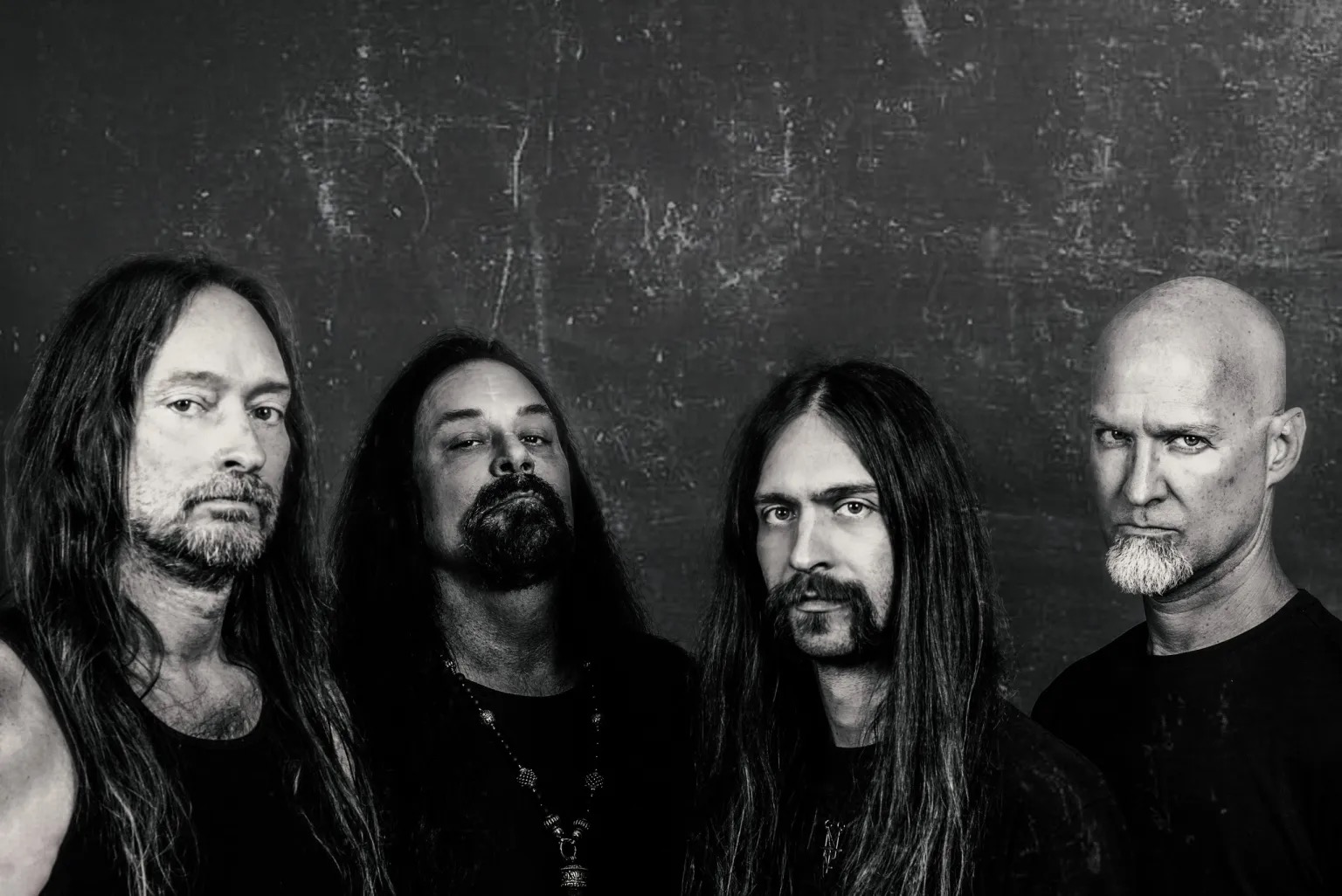Although Sevendust first appeared on the international scene with their 1997 eponymous debut, it was ‘My Ruin’ (featured on the 1996 Mortal Kombat soundtrack album) that piqued the interest of many. The album itself, thanks to the band’s deft mix of industrial, nu-metal and, of course, Lajon Witherspoon’s vocals, was certainly impressive and Sevendust gained a considerable following. Second album ‘Home’ cemented that position and it appeared the band were on their way to superstardom. However, the troubled release history of ‘animosity’, which saw the album available for aeons on expensive import, numerous issues both personal and financial and the unnecessarily vituperative backlash against nu-metal, served to dampen the band’s momentum, at least on this side of the Atlantic, despite chart success and a number of high profile tours in the US. However, with ‘Kill the flaw’ having hit the UK charts and with the band working hard to streamline their sound, anticipation for ‘all I see is war’ has been considerable.
Produced by Michael ‘Elvis’ Baskette, who impressed the band with his work on albums by Incubus and Stone Temple Pilots, ‘All I see is war’ sees the band refocus their sound and, whilst it’s hardly a full-blown re-invention, there’s no question that Baskette has given the band a stadium-sized sheen whilst keeping the chunky riffs and potent groove intact. The album starts well, the phased guitar intro of ‘Dirty’ giving way to a barrage of Morgan Rose’s double kick drum and grinding riffs. Lajon, as always, excels, slipping from a smooth, soulful tone that recalls Dan Reed to ferocious roar with consummate ease. Like all the tracks here, ‘Dirty’ is short, potent and memorably melodic. Certainly the vibe continues on ‘god bites his tongue’, a track that does much to recall Filter’s work on ‘the trouble with angels’, the band deftly pairing huge banks of guitars with layered harmonies and a chorus so addictive it could have been coated in crack before release. With Morgan laying down a taut, half-time beat, ‘medicated’ sees Baskette compress the band’s sound into a single, sledgehammer, only to pull the rug out from under the listener’s feet by adding piano and strings into the mix in a manner that is surprising and yet entirely natural in the context of the song. It’s a lush sound the band have opted for this time round for sure, yet the band maintain the power of the riffs and the shifts in dynamic to quieter passages only serve to make the heavier elements all the more so. This is nowhere more apparent than on ‘unforgiven’, a track that emerges as a subtle, trip hop piece only to explode into violent life with unexpected ferocity. Despite a title promising an explosive white-out, ‘sickness’ has a more soulful vibe – somewhere between Stone Sour and Dan Reed Network – the band adding strings to an emotional chorus, although chunky guitars reappear in the song’s climactic second half. The first half of the album ends with the awkward, stuttered rhythm of ‘cheers’, an impressive piece of music which sees Lajon’s smooth vocals float over a backdrop of precision-guided fury.
The second half of the album kicks off with the potent riffing of ‘risen’, a short, powerful belter before the piano-led ‘moments’ heads into the US radio rock arena, its pounding beat and rippling piano custom-built for an arena crowd raised on Stone Sour’s soaring anthems. It all seems to be paving the way for the airy, Dan Reed meets U2 ballad ‘not original’, a track that sees the band trade their gargantuan riffing for echoing clean tones and expansive harmonies. However, heavy fare is never far away and ‘descend’ does a good job of juxtaposing a soulful, subtle verse with a chorus that shoots showers of sparks, the overall effect being to once more recall Stone Sour at their epic best. With the keyboards remaining to the fore, ‘life deceives you’ promises a quieter ride before suddenly taking a left turn into more violent territory. Having spent several tracks exploring the quieter elements of their sound, Sevendust end the album with a bang, tearing into the ferocious ‘the truth’ with considerable abandon. One of the album’s heaviest tracks, it leaves the listener sweaty, exhilarated and with the sense that, on ‘All I see is war’, Sevendust are a band renewed.
Whenever a band talks of renewing their sound there’s a certain trepidation, but Sevendust haven’t so much reinvented themselves as added a selection of new tricks to an already impressive arsenal. It is arguable that the album’s greatest strength is that it allows more room for Lajon’s powerful, soulful vocals to breathe, which can never a bad thing be. The heavier elements, meanwhile, have not been tamed so much as focused, Baskette giving the band a clarity and polish that will certainly see them reach a wider audience. At 45 minutes in length, it’s a relatively short record with no song outstaying its welcome, and the overall result is an album that will please the fanbase whilst reaching out to a whole new legion of admirers. In short, ‘All I see is war’ is well worth checking out. 8











Leave a Reply